Comparing Different Types of Hot Water Systems: A Comprehensive Guide
Navigating the choice of a hot water system? This guide will help by comparing different types of hot water systems. We’ll cover electric, gas, heat pump, and solar options, detailing their pros and cons to guide your decision.
Key Takeaways
-
There are multiple types of hot water systems: storage hot water systems, continuous flow water heaters, electric, gas, solar, and heat pump systems. Each type has specific advantages and suitable use cases based on household needs, energy efficiency, and environmental considerations.
-
Gas and electric systems are popular for their relatively lower upfront costs and ease of installation, while solar and heat pump systems, though initially more expensive, offer significant long-term savings and environmental benefits.
-
Key factors when choosing a hot water system include household size, water demand, installation space, energy efficiency, running costs, safety considerations, and the long-term sustainability and environmental impact of the system.
1 Overview of Hot Water Systems
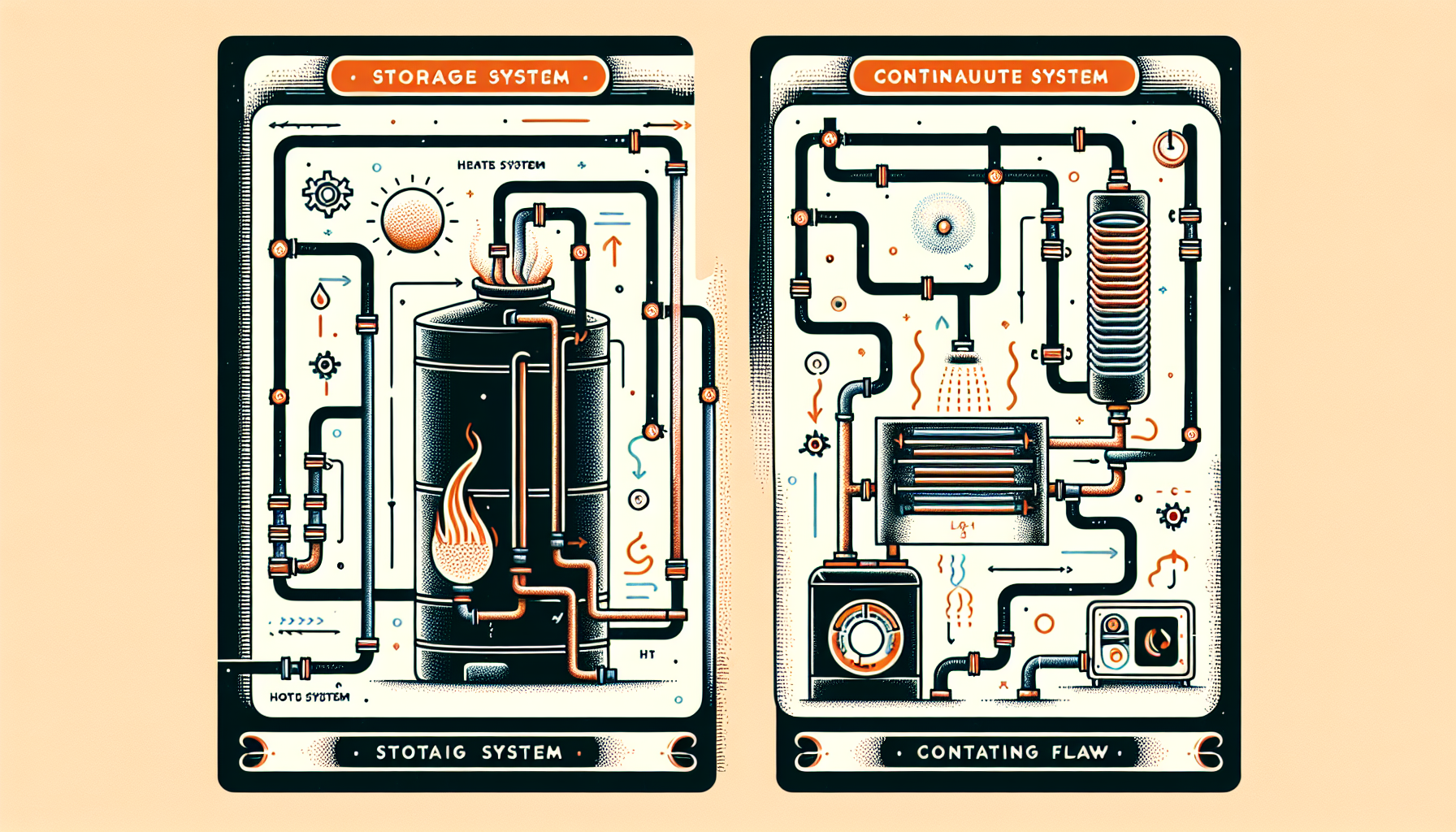
Stepping into the realm of hot water systems, one finds two dominant species: the storage hot water systems and the continuous flow water heaters. Storage systems, like a reservoir of warmth, stand ready to deliver heated water at a moment’s notice, while their continuous flow counterparts are akin to a vigilant sentinel, heating water precisely when called upon, ensuring no drop is warmed in vain.
As you consider the best hot water system for your household, remember that each type has its own set of benefits tailored to different needs and lifestyles.
Storage Hot Water Systems
Diving deeper into storage hot water systems, imagine a cauldron, continuously kept at the boil, ready to serve your hot water needs instantly. These systems are the traditionalists of the hot water world, heating and holding a specified amount within an insulated tank, like a thermal flask, ensuring that warmth is retained even in the coldest of times. However, they are not without their flaws; a portion of their energy diligently spent on heating escapes as heat loss, a silent thief in the night.
Yet, their capacity to deliver hot water with the turn of a tap makes them a steadfast choice in many homes.
Continuous Flow Water Heaters
In contrast, continuous flow water heaters are the innovative mavericks, heating on the fly, capturing only what is required at any given moment. They shine in their efficiency, avoiding the wastefulness of heating unused water, and are never caught unprepared, guaranteeing an endless stream of hot water that never runs dry.
These systems represent the pinnacle of water heating evolution, a beacon of the efficient use of energy, and a testament to modern ingenuity.
Electric Hot Water Systems
Electric hot water systems, the stalwarts of simplicity, offer a straightforward solution for heating water. These systems, also known as electric hot water system, come in two flavors: storage and instantaneous, each with their unique set of advantages. The storage systems bask in their glory of lower upfront costs and the comfort of the off-peak tariffs, while the instantaneous comrades boast their prowess in heating water on demand, eliminating the need for a bulky tank.
Though they may be more costly to operate due to higher energy prices, they remain a popular choice for their ease of installation and widespread availability.
Electric Storage Water Heater
The electric storage water heater, a common fixture in many homes, offers:
-
A reliable hot water supply
-
Economical management through the strategic use of tariffs
-
Energy bill savings
-
A lifespan of up to 15 years
-
Standby heat losses
It promises a long-term relationship with your home, though it’s not without the occasional sacrifice.
Yet, their relatively low replacement cost ensures they remain an accessible option for many.
Electric Instantaneous Water Heaters
The electric instantaneous water heater, a paragon of modern water heating, has several advantages:
-
It heats water only when needed, saving energy and reducing utility bills.
-
It is compact and can fit into small spaces, making it suitable for apartments and modest homes.
-
It is highly efficient in energy use, as it does not suffer the heat losses associated with storage tanks.
Their adoption speaks of a future where every drop of hot water is accounted for, and none is wasted in the process.
Gas Hot Water Systems
Gas hot water systems, with their blue flames and robust heat, offer an alternative to their electric counterparts. They too celebrate diversity with the presence of storage and continuous flow systems within their ranks. Gas storage systems boast a rapid heating rate and a more palatable operational cost when compared to electric systems, owing to the generally lower price of gas.
Continuous flow gas systems, on the other hand, champion the cause of energy efficiency and an endless supply of hot water, making them a coveted option for the eco-conscious.
Gas Storage Units
Gas storage units, with their humble pilot flames, keep a watchful guard, ensuring that the water remains at the ready, heated to perfection. These units, with a lifespan of about a decade, stand ready to serve households of various sizes, providing a constant supply of hot water that can meet the demands of a bustling home.
Though their upfront cost may be higher than some electric models, their ability to interface seamlessly with existing natural gas lines can make them a more cost-effective option in the long run.
Continuous Flow Gas Water Heaters
Continuous flow gas water heaters, the epitome of modern efficiency, heat water on demand with a precision that is nothing short of artistry. The moment the tap calls, a burner ignites, and a dance of flames and water commences, ensuring that not a single joule of gas is wasted. These units, known for their longevity, can surpass two decades of service, making them a wise investment for those seeking a reliable and sustainable source of hot water.
Solar Hot Water Systems
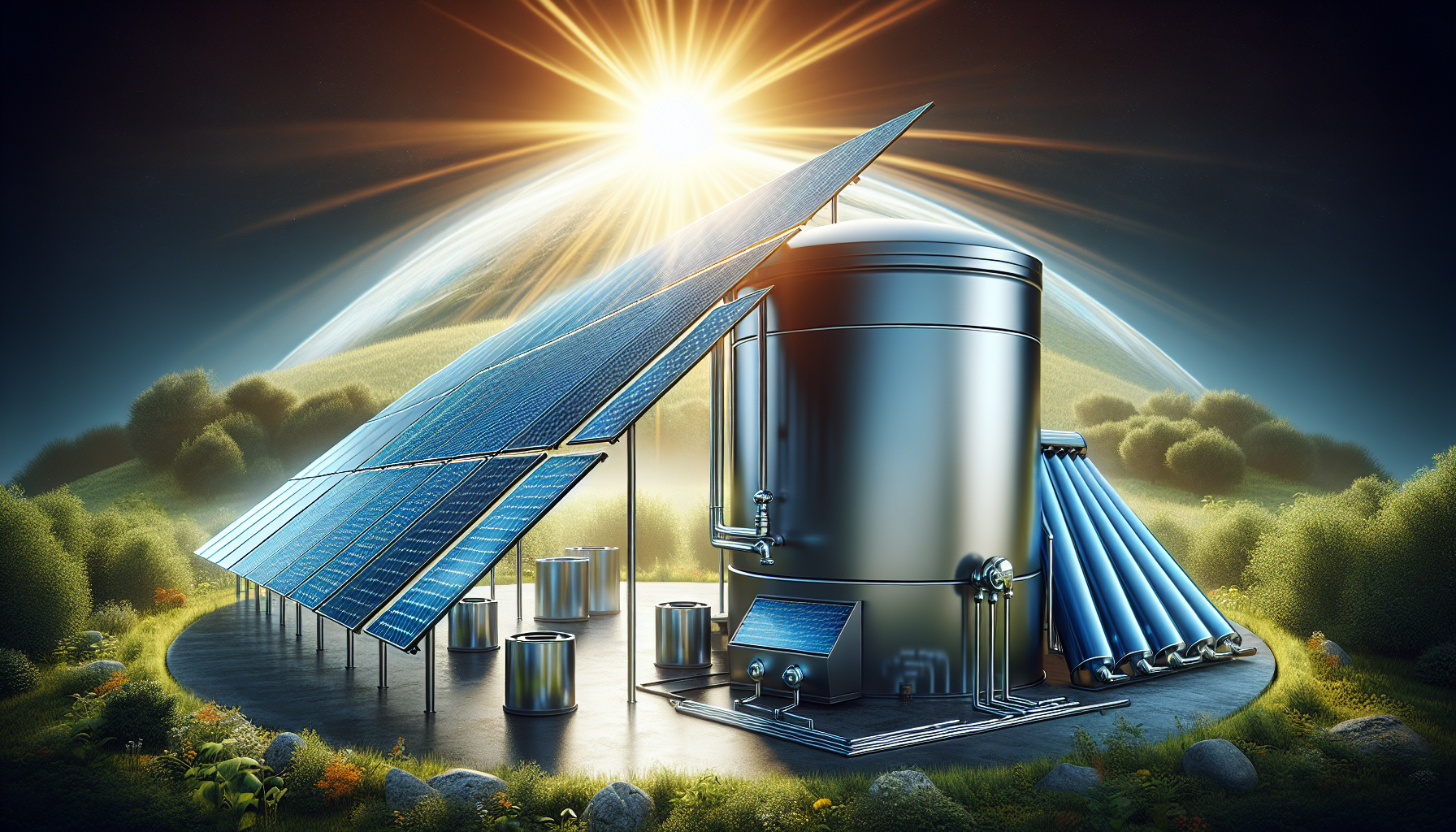
Solar hot water systems, the harbingers of green technology, harness the power of the sun to provide hot water in a manner that is not only cost-effective but also kind to the Earth. With their solar collectors basking in the sunlight, these systems can fulfill up to 90% of a household’s hot water needs in the right climates, all while significantly reducing one’s carbon footprint.
Though their initial investment may be higher, the long-term benefits, both financial and environmental, are undeniable, offering reduced energy bills and a sustainable solution for water heating.
Direct Solar Water Heaters
Direct solar water heaters stand as the purest form of solar heating, where water circulates through panels, kissing the sun’s rays, and absorbing heat directly. Ideally suited for regions that smile under the sun without the threat of frost, these systems offer a direct transfer of solar energy into heat, ensuring that efficiency is maximized.
Their design speaks of a straightforward approach to harnessing solar energy through solar panels, making them a popular choice in the sunniest parts of our planet.
Indirect Solar Water Heaters
Indirect solar water heaters, the cunning strategists of the solar world, employ a heat transfer fluid to collect solar energy, which is then exchanged with water in a separate system. This method cunningly averts the dangers posed by freezing temperatures, making these systems suitable for a broader range of climates.
Their adaptability and efficiency make them a beacon of hope for those dwelling in less temperate zones, wishing to harness the sun’s power.
Heat Pump Hot Water Systems
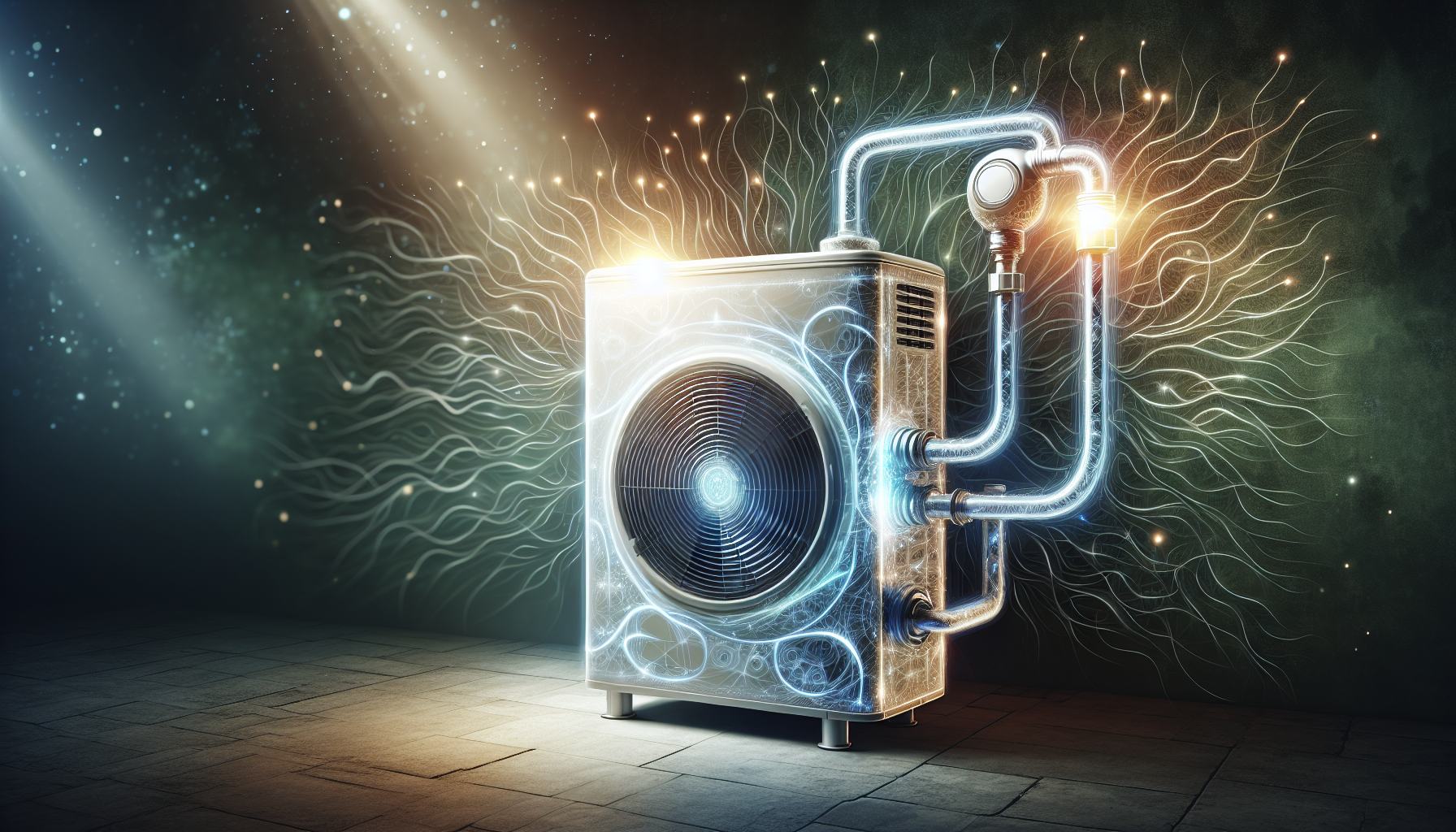
Heat pump hot water systems, the magicians of energy transfer, operate on the principle of reverse refrigeration, pulling heat from the surrounding air to warm water. This sorcery allows them to be 2-3 times more energy efficient than traditional electric heaters, offering a sustainable and cost-effective method for water heating.
With their ability to provide significant savings on running costs, heat pump hot water systems are a testament to the incredible potential of energy-efficient technology.
Air-Source Heat Pumps
Air-source heat pumps, the whisperers of the winds, draw warmth from the ambient air, compressing it to coax out the heat. Their efficiency peaks in mild climates, where the air is generous with its heat, making them a fitting choice for regions kissed by moderate temperatures. These systems are available in various configurations, catering to different household needs and offering flexibility in their installation.
Geothermal Heat Pumps
Geothermal heat pumps, the adepts of the Earth’s stable temperatures, source heat from underground or water bodies, offering an unwavering consistency in water heating. Their efficiency is remarkable, providing more heat per unit of electricity used than most other systems, yet their installation complexity can be a barrier to some.
For those willing to invest in this advanced technology, the rewards are plentiful, both in energy savings and environmental benefits.
Factors to Consider When Choosing a Hot Water System
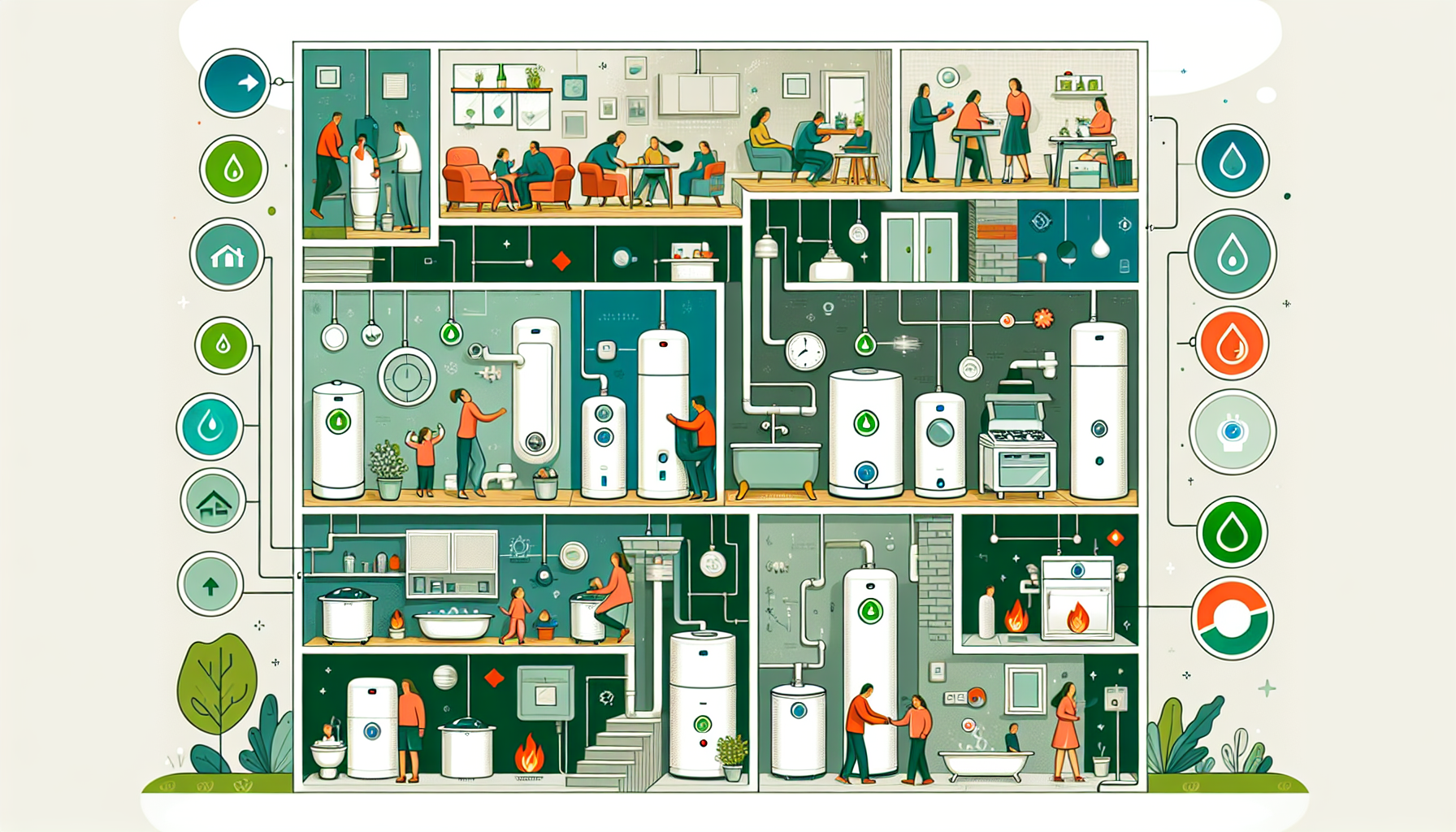
When the quest for a new hot water system begins, it’s not merely about choosing the largest or the most advanced; it’s about matching your home’s needs with the right system. Factors like household size, water usage habits, and local climate play pivotal roles in determining the most suitable system.
Whether you’re a family of four requiring a hearty supply for baths and dishes or a couple with minimal needs, selecting the correctly sized system is paramount to ensuring efficiency and satisfaction.
Household Size and Hot Water Demand
Household size and hot water demand are intertwined in a delicate dance, where each person’s usage contributes to the collective need. From the solitary serenity of a single bath to the bustling activity of a large family, hot water demand can range significantly, necessitating careful consideration of your home’s size and the water usage patterns of its inhabitants.
Understanding this dynamic is key to choosing a hot water system that won’t leave you cold or unnecessarily heat water that goes unused.
Installation Space and Location
Installation space and location are as crucial as the system itself, for a poorly positioned unit can lead to inefficiencies and frustrations. Heat pump water heaters, for example, require sufficient air space to operate efficiently. The space available in your home, whether it be a cozy corner or a vast basement, will influence the type and size of the system you can accommodate, ensuring it performs optimally and integrates seamlessly into your living environment.
Energy Efficiency and Running Costs
Energy efficiency and running costs are the silent factors that will whisper in your ear long after the initial purchase. With hot water systems accounting for a significant portion of household energy use, selecting a system with low running costs can lead to substantial savings over time.
Here are some options to consider:
-
Gas system: Gas systems generally have lower operational costs compared to electric systems. They are also more environmentally friendly.
-
Solar system: Installing a solar hot water system can significantly reduce your energy bills. In addition, you may be eligible for government rebates or incentives.
-
Heat pump system: Heat pump systems are highly energy efficient and can save you money in the long run. They work by extracting heat from the air or ground and transferring it to the water.
Understanding the long-term financial implications of each option is crucial for making an informed choice.
Safety Considerations for Hot Water Systems
Safety considerations for hot water systems are not to be taken lightly, as the potential for scalding and the growth of harmful bacteria like Legionella must be addressed. The Australian Government mandates the installation of tempering valves to mitigate these risks, ensuring that water is delivered at a safe temperature.
Regular maintenance and adherence to safety guidelines are essential for protecting both your family and your hot water system, guaranteeing long-term peace of mind.
Temperature Control
Temperature control in hot water systems is a delicate balance between comfort and safety. By setting the thermostat to a recommended 120°F (49°C), one can prevent scalding, conserve energy, and ensure that the water remains pleasant for use. This measure not only protects against burns but also contributes to the efficiency and longevity of the system.
Regular Maintenance
Regular maintenance is the guardian of your hot water system’s health, particularly for gas systems that require vigilance to prevent the release of toxic fumes. A well-maintained system not only operates more efficiently but also extends its lifespan, ensuring that it remains a reliable source of comfort in your home.
Environmental Impact and Sustainability
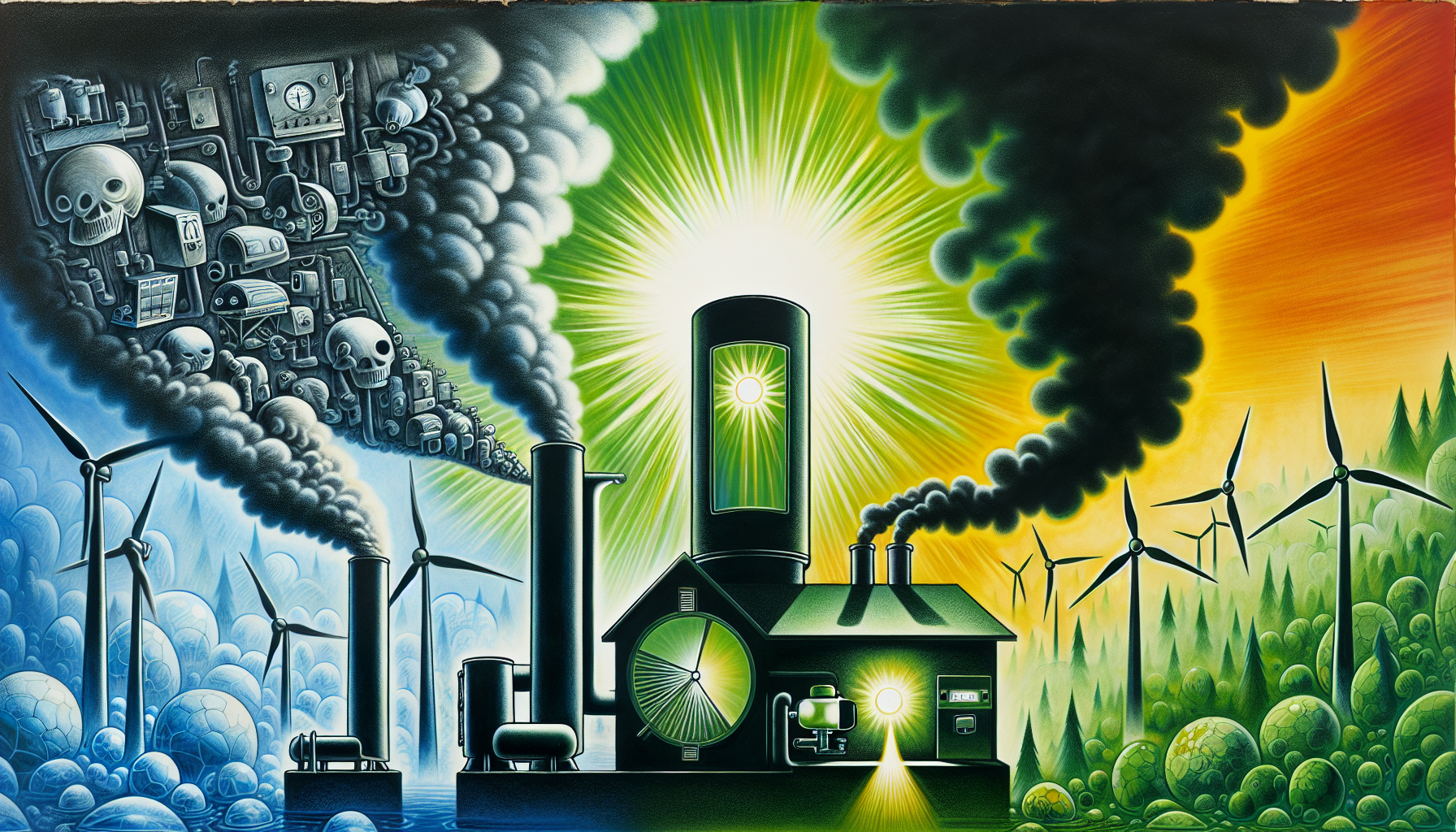
The environmental impact and sustainability of hot water systems are becoming increasingly important in an era where the consequences of our energy choices are felt globally. Traditional electric and gas systems, while reliable, contribute to greenhouse gas emissions, which are a growing concern.
By considering renewable energy options such as solar or heat pump systems, one can significantly reduce their carbon footprint and contribute to a more sustainable future.
Renewable Energy Options
Renewable energy options for hot water systems are not only a boon for the environment but also for your wallet. Solar hot water systems, for instance, can provide long-term savings on energy bills while reducing reliance on non-renewable energy sources.
When paired with a solar PV system, these systems can maximize the use of clean, renewable energy, further enhancing their eco-friendliness and cost-effectiveness.
Reducing Greenhouse Gas Emissions
Reducing greenhouse gas emissions is a collective responsibility, and choosing the right hot water system plays a vital part. Heat pump systems stand out for their low emissions and efficient energy use, offering a responsible choice for water heating.
By opting for systems that minimize energy consumption and embrace renewable sources, households can take a significant step towards curbing their environmental impact.
Cost Comparison of Hot Water Systems
The cost of purchasing and installing a hot water system varies widely, a factor that must be considered alongside the allure of features and efficiency. Electric water heaters often boast the lowest initial investment, with prices that can be gentle on the budget. Gas systems, while slightly more expensive to install, can offer savings in the long run due to the lower cost of gas compared to electricity.
Solar water heaters, with their higher upfront costs, represent a long-term investment in sustainability and future savings. Understanding these costs is essential for making a decision that aligns with both your financial constraints and your desire for an efficient, reliable source of hot water.
Purchase and Installation Costs
The initial outlay for a hot water system encompasses more than just the price tag of the unit itself; it includes the cost of installation, which can vary depending on the complexity of the system and the need for professional services.
While electric storage systems might seduce with their lower upfront costs, the long-term economic landscape should be surveyed with a keen eye, considering additional factors such as maintenance and energy tariffs.
Long-Term Savings
Long-term savings are the treasure at the end of the hot water system rainbow. Energy-efficient systems, such as those using heat pump technology, can lead to a significant reduction in energy consumption and, consequently, utility bills. These savings can swiftly offset the higher initial costs of more efficient systems, rendering them not just environmentally prudent choices but also economically wise investments over time.
It’s crucial to consider both the short-term costs and the long-term financial benefits when selecting the best hot water system for your home.
Lifespan and Durability of Hot Water Systems
The lifespan and durability of hot water systems are factors that can greatly affect the overall value and satisfaction derived from your investment. Generally, hot water systems can serve faithfully anywhere from 8 to 20 years, with the specific lifespan varying by type and brand, as well as how well they are maintained.
The choice of system should not only be based on current needs but also on the expected longevity and the ability to withstand the test of time and usage.
Average Lifespan by System Type
The average lifespan of a hot water system is a tapestry woven with various threads, each representing different system types with their own expected service lives. Continuous flow water heaters often lead the pack with up to 20 years of reliable service, while solar hot water systems follow closely, offering around 10 years of environmental and financial benefits. Understanding the average lifespan of each system type can guide you towards a choice that balances immediate needs with long-term expectations.
Maintenance Tips for Longevity
The secret to extending the lifespan of a hot water system lies in regular maintenance. This could include tasks such as replacing the sacrificial anode in a storage tank to prevent corrosion, or cleaning air filters to ensure efficient operation.
Professional inspections, along with vigilant monitoring for leaks and maintaining clear surroundings for proper ventilation, are also key practices that contribute to the longevity and reliability of your hot water system.
Summary
As we reach the end of our comprehensive journey through the world of hot water systems, it’s clear that the choice is as varied as it is important. From the instant gratification of continuous flow heaters to the environmental stewardship of solar systems, each type has its own merits and considerations. Factor in the initial costs, potential long-term savings, safety, and sustainability, and you’re equipped to make a decision that not only warms your water but also feels right for your home and your conscience. Let the warmth of knowledge guide you to the hot water system that best suits your life.
Frequently Asked Questions
What is the most cost-effective hot water system to install?
The most cost-effective hot water system to install is electric storage water heaters, which have the lowest upfront installation costs ranging between $1,000 and $2,000. However, long-term energy usage and costs should also be considered.
How do I know what size hot water system I need?
To determine the size of hot water system you need, consider the number of people in your household and their hot water usage patterns, with a general guideline of 50-100 liters of hot water per person per day.
Can solar hot water systems provide enough hot water on cloudy days?
Yes, solar hot water systems can provide enough hot water on cloudy days by using a booster to ensure a continuous supply of hot water.
Are heat pump hot water systems environmentally friendly?
Yes, heat pump hot water systems are considered environmentally friendly because they use less electricity and result in lower greenhouse gas emissions compared to traditional electric systems.
How often should I service my hot water system?
It's advisable to have your hot water system inspected annually or bi-annually by a professional to ensure it operates efficiently and safely. This regular maintenance can include checking for leaks, replacing anodes, and cleaning filters.








